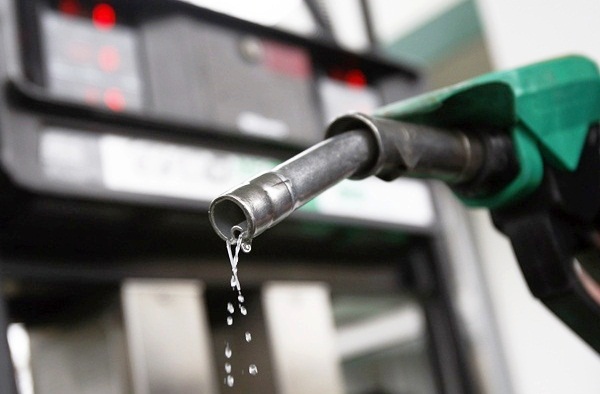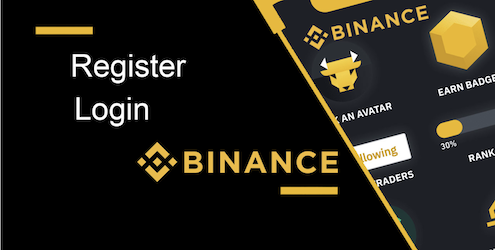The Public Monetary Board, NEC, yesterday suspended the arranged evacuation of appropriation on oil based goods toward the finish of May by President Muhammadu Buhari’s organization.
Remember that the Federal government had stated that the upcoming government would eliminate the gasoline subsidy at the end of May.
This was discussed by Mrs. Zainab Ahmed, Minister of Finance, Budget, and National Planning, in an interview with State House correspondents following the conclusion of the NEC meeting in Abuja’s Presidential Villa, presided over by Vice President Yemi Osinbajo.
The Nigeria Labour Congress, or NLC, and the Trade Union Congress, or TUC, both of which have opposed the removal, responded positively to the announcement.
While the TUC praised the suspension, the NLC stated that now is the ideal time to determine the nation’s refinery capacity.
In a similar vein, the Centre for the Promotion of Private Enterprise, or CPPE, requested that the Federal Government delegate the elimination of the gasoline subsidy to the newly elected government.
However, when asked about the suspension, the Finance Minister explained that the removal of the subsidy would probably take place in June due to the fact that the Petroleum Industry Act, the PIA, and the budget for 2023 all provided for the subsidy until June. As a result, any delay might necessitate amending the PIA and the provision in the budget.
Ahmed explained that even though the fuel subsidy was going to be taken away soon, the council decided that it shouldn’t be right now.
She explained that the council decided that the Federal Government should continue all necessary preparatory work, which had to be done in conjunction with representatives of the incoming administration and states and other key stakeholders.
‘Timing ought not be presently’
Mrs Ahmed said: “Post-subsidy removal was a topic of discussion at the National Economic Council, or NEC. The Council concurred that the removal of the subsidy should not occur now, but that all necessary preparatory work should be carried out in conjunction with the states and other key stakeholders, including representatives of the incoming administration.
“The chamber concurred that fuel sponsorship should be taken out before as opposed to later in light of the fact that it isn’t supportable. It is no longer within our means. We have to do it in such a way that the subsidy has as little of an effect on everyday life as possible.
“As a result, this will necessitate looking at alternatives to the post-subsidy that need to be planned for and then implemented, as well as what needs to be done to support the individuals who are most adversely affected by the removal.
Therefore, we will collaborate with state representatives to develop a strategy that will begin laying the groundwork for the eventual elimination of the fuel subsidy.
“Finally, remind the forum that the subsidy provision in the budget for 2023 only extends to June 2023. Additionally, the Petroleum Industry Act stipulates that all petroleum products must be deregulated 18 months after the effective date of the removal, also to June 2023.
“I said we agreed to form an expanded committee that will be looking at the removal process, including determining the exact time and the measures that need to be taken to provide support to the poor and vulnerable, as well as the alternatives that will be put in place, including ensuring that the country has a sufficient supply of petroleum products,”
The minister stated that the next administration should be responsible for issues relating to the removal of the fuel subsidy because the law stipulates that it must occur in June.
“I said it won’t be removed now, which means it won’t be removed before the transition is finished,” I said. It really intends that. However at that point we have two regulations that have incidentally made the arrangement that we ought to exit by June.
“So the board’s work, which will incorporate the delegates of the approaching organization, will decide whether the evacuation should be possible by June, then, at that point, they will design.
The work plan is intended to end in June; however, if it is determined that the period will be extended, our nation will need to revisit the Appropriation Act, for instance because the 2023 budget only included funding for June.
Therefore, if we extend beyond June, we will have to reevaluate the Appropriation Act and either amend the bill or the Petroleum Industry Act, PIA, or create a supplementary budget.
“Thus, these are the reasons we needed to do this meeting. We might want to get inputs from the lead representatives. They will give us their delegates to cooperate with us to have a characterized interaction that will take us towards the evacuation.
“However, one thing that is abundantly clear is that everyone is in agreement that the subsidy should be eliminated as soon as possible due to the fact that the cost is not only inefficient but also unsustainable, and that when the time comes to do so, it will be eliminated completely.” she said
Handling question on unambiguous measures to be set up to relieve the impact of endowment expulsion and what the choice would mean for the law on ground as the PIA possessed given an unmistakable energy for the evacuation of sponsorship, she said the 2023 financial plan accommodated appropriation until June 2023.
She added, “I said we agreed to form an expanded committee to examine the removal process, including determining the exact time and the measures needed to support the poor and vulnerable, as well as the alternatives that will be implemented, such as ensuring that the country has an adequate supply of petroleum products.
“As a result, the decision has been made to expand the committee, which is currently comprised of representatives from the states. It will also engage with petroleum marketers and laborers.
“NNPC, the downstream/upstream regulator, the ministry of finance, the budget, and national planning are all members of the immediate committee. So there’ll be an extended board so in addition to a couple of individuals’ viewpoints will direct the cycle however that there is adequate counsel, taking contributions from key partners into the actions that should be taken.”
Answering an inquiry on the $800m World Bank credit to assist with padding the impact of fuel sponsorship expulsion, the clergyman said: “On the $800 million facility, we hope that the federal government and the state will be able to provide additional measures as a result of the fuel subsidy’s elimination and the savings it will bring the nation.
“Once more, that is a topic of discussion. The states might need to have their own plan programs, the national government might believe that should accomplish something else. As a result, we need to talk about how to use those savings, which was also presented yesterday at the National Economic Council.
The Nigeria Labour Congress, or NLC, stated that the government should make use of the window provided by the Federal Government’s suspension of the planned removal of petrol subsidy to develop a timeline-based road map to restore Nigeria’s refining capacity in response to news of the suspension.
Emma Ugboaja, the General Secretary of the NLC, stated: It is the best thing to do. Ironicly the public authority, finally, is showing worry for individuals.
This is a choice that ought to have been made a long time ago. The fact that the government, which is in its final days, has apologized and realized that Nigerians have been suffering is not bad.
We believe that the government should have enough time to restore the nation’s refining capacity as a result of this. This suspension ought to offer the public authority chance to settle on a course of events based guide to reestablish our refining limit. The majority of Nigerians are looking forward to that and nothing else.
The Trade Union Congress of Nigeria, or TUC, stated that the government’s decision to now listen to the voice of reason and suspend the planned subsidy removal was commendable.
Speaking on behalf of the union, Nuhu Toro, Secretary General of the TUC, stated: We had informed Nigerians that we were not a part of the planned subsidy removal, so it has vindicated us.
We told the public the truth and we were never consulted. The decision to remove was made unilaterally and could not have been beneficial to anyone.
The truth is that the so-called planned elimination of subsidies was anti-people and ill-timed. There is nothing wrong with the government now making the decision to change its mind and listen to the voice of reason.
Dr. Muda Yusuf, Director of the Centre for the Promotion of Private Enterprise at CPPE, stated yesterday that the removal of petroleum subsidy should be left up to the incoming government.
He said, ” The CPPE is of the opinion that the incoming administration should handle all issues regarding the elimination of the gasoline subsidy.
“This ought to be the default position since the ongoing government has reported a monetary arrangement for fuel sponsorship up till June 2023. The Petroleum industry Act in its amended form also holds this position. The issue ought to be left up to the new administration, rather than causing yet another round of controversy and confusion. It was completely unnecessary to make the NEC announcement.
“The assumption is that the new organization ought to have its technique of dealing with the strategy progress. This ought not be seized by the ongoing organization. The NEC should refrain from making policy pronouncements that could cause issues for the incoming administration. In addition, I anticipate that the incoming administration’s transition team and key stakeholders should have started having informal discussions about the matter.
“The APC had categorically stated that it would remove the petrol subsidy upon assumption of office, despite not revealing its strategy for doing so.”


